“Doug & Chris are top notch. Both are extremely competent, family oriented and deliver results.”-D.P.
Recent Blog Posts
What Are My Rights if I Have Been Charged With a Drug Crime?
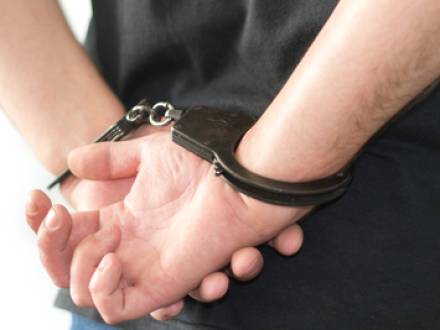 If you are arrested and charged with drug possession in Houston, no matter what drug you have been charged with possessing, the potential consequences of a conviction are severe. That said, regardless of the legal jeopardy you face, you are endowed with certain rights and liberties by the Constitution of the United States of America. These rights affect how the state can proceed with your prosecution and how law enforcement can collect evidence against you. A Houston, TX drug crimes defense lawyer can inform you of these rights and make sure that you are fairly represented.
If you are arrested and charged with drug possession in Houston, no matter what drug you have been charged with possessing, the potential consequences of a conviction are severe. That said, regardless of the legal jeopardy you face, you are endowed with certain rights and liberties by the Constitution of the United States of America. These rights affect how the state can proceed with your prosecution and how law enforcement can collect evidence against you. A Houston, TX drug crimes defense lawyer can inform you of these rights and make sure that you are fairly represented.
Your Rights as a Criminal Defendant
The rights afforded to you by the United States Constitution cover everything from protection from having your testimony compelled to your right to confront the witnesses brought against you. Below are the most important rights that protect you as a criminal defendant.
How Serious of a Charge is Evading Arrest?
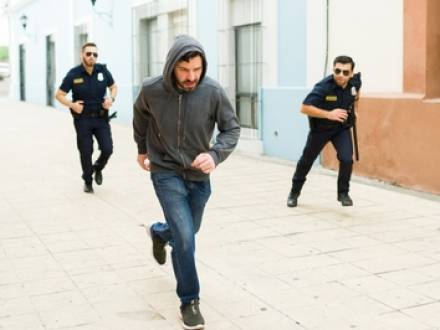 An encounter with law enforcement can be stressful, to say the least. In the heat of the moment, some people react with panic and attempt to evade the authorities. In Houston, this can have dire legal consequences. If you have been accused of trying to avoid apprehension, you should seek out the legal services of a Houston, TX criminal defense attorney as soon as possible.
An encounter with law enforcement can be stressful, to say the least. In the heat of the moment, some people react with panic and attempt to evade the authorities. In Houston, this can have dire legal consequences. If you have been accused of trying to avoid apprehension, you should seek out the legal services of a Houston, TX criminal defense attorney as soon as possible.
A charge of evading arrest can be imposed on top of another crime, leading to a harsher sentence. The judge and prosecution may also view you as a flight risk and treat you with more caution. At Murphy & McKinney Law Firm, P.C., we can provide you with representation and counsel from the moment of your arrest.
What Are the Penalties for Evading Arrest in Houston?
Attempting to avoid getting arrested is a Class A misdemeanor under Texas law. This can carry a hefty fine of up to $4,000 and the possibility of up to a year of imprisonment. However, the penalties do not stop there. The offense could be escalated to a state jail felony if you use a vehicle or watercraft to evade arrest, or if you have a prior offense on your record. A state jail felony is punishable by a fine of up to $10,000 and up to two years in jail.
When Can I Claim Entrapment in a Criminal Defense Case?
 Sometimes, police will engage in sting operations in an effort to catch criminals. While it can prevent crime, these sting operations can raise ethical questions when law enforcement officers use aggressive tactics to apprehend individuals. If you were caught in a sting operation, you may wonder if you can cite entrapment as a defense. A Houston criminal defense lawyer can review your case to see if your rights have been violated by law enforcement.
Sometimes, police will engage in sting operations in an effort to catch criminals. While it can prevent crime, these sting operations can raise ethical questions when law enforcement officers use aggressive tactics to apprehend individuals. If you were caught in a sting operation, you may wonder if you can cite entrapment as a defense. A Houston criminal defense lawyer can review your case to see if your rights have been violated by law enforcement.
At Murphy & McKinney Law Firm, P.C., we know how intimidating it can be to speak up for yourself in court. Our firm can advocate for you, supporting your case with our wealth of legal knowledge.
What Does Inducement Mean?
There is a difference between simply being presented with an opportunity to commit a crime and being encouraged to commit one. Under Texas law, you can only cite entrapment as a defense if a law enforcement agent used "persuasion or other means" to urge you to commit a crime. The law specifically states that "merely affording an opportunity" to commit a crime does not qualify as entrapment.
Can I Claim Defense of Others in a Domestic Violence Case?
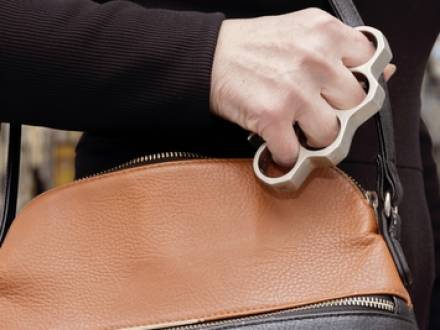 There are many forms of self-defense claims you can make in Houston. These expansive rights extend to domestic violence claims in addition to standard assault cases and expand beyond your right to defend yourself from the threat of violence. State law gives you the right to stand up for another individual when an imminent threat is present. However, this defense is not open-ended. If you fail to act reasonably you could find yourself facing charges of domestic assault despite your effort to defend a third party or even yourself.
There are many forms of self-defense claims you can make in Houston. These expansive rights extend to domestic violence claims in addition to standard assault cases and expand beyond your right to defend yourself from the threat of violence. State law gives you the right to stand up for another individual when an imminent threat is present. However, this defense is not open-ended. If you fail to act reasonably you could find yourself facing charges of domestic assault despite your effort to defend a third party or even yourself.
If you are facing criminal charges after defending another person, a Houston, TX domestic violence defense lawyer can help. Call the Murphy & McKinney Law Firm, P.C. right away to schedule an initial consultation.
Contesting a Domestic Violence Charge Through Defense of Others
You have the right to use force to defend another person from a violent threat. However, the law requires that you do so within certain parameters to avoid criminal liability. These defenses are complex, as they involve admitting that you committed an act of violence against a spouse, partner, or household member. Despite meeting every element of the offense, the jury can find that your actions were justified if they agree that the defense applies.
What You Should Know About White Collar Crimes
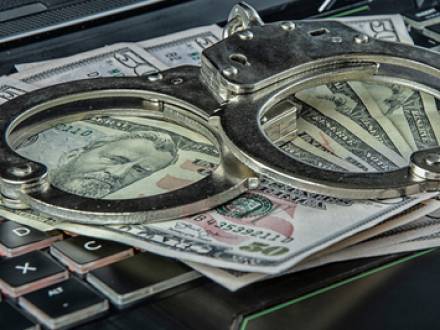 In discussions about criminal violations, white collar crimes are often overlooked in favor of homicide, drug crimes, and other more sensational offenses. But make no mistake – a conviction of a white collar crime can ruin your life. If you have been accused of a crime involving fraud, you should seek out a Houston defense attorney to protect your best interests.
In discussions about criminal violations, white collar crimes are often overlooked in favor of homicide, drug crimes, and other more sensational offenses. But make no mistake – a conviction of a white collar crime can ruin your life. If you have been accused of a crime involving fraud, you should seek out a Houston defense attorney to protect your best interests.
Defending against white collar crimes can be a complex affair. It demands more legal knowledge than most people can claim. At the Murphy & McKinney Law Firm, P.C., we have the skills and knowledge needed to represent you effectively in court.
Fraud Crimes Can Be Expensive
Many people accused of offenses like embezzlement, bank fraud, and identity theft do not realize how expensive these crimes can be. These crimes are punishable not only by jail time but also hefty fines.
Common Terms of Deferred Adjudication in Houston
 If you have been accused of a criminal offense, requesting deferred adjudication can help to protect your future. This option allows you to avoid a conviction and jail time as long as you comply with certain terms, in a similar vein to getting released on probation. Depending on your case, the terms of deferred adjudication could be more lenient or strict. A Houston criminal defense lawyer can advise you on what to do during deferred adjudication and represent you if you are accused of violating the terms.
If you have been accused of a criminal offense, requesting deferred adjudication can help to protect your future. This option allows you to avoid a conviction and jail time as long as you comply with certain terms, in a similar vein to getting released on probation. Depending on your case, the terms of deferred adjudication could be more lenient or strict. A Houston criminal defense lawyer can advise you on what to do during deferred adjudication and represent you if you are accused of violating the terms.
At Murphy & McKinney Law Firm, P.C., we have years of experience representing clients in intense criminal cases. If you have any questions about deferred adjudication, our firm can clarify what is expected of you from the court.
Attending Counseling and Staying Clean
For certain offenses involving drugs or alcohol, a judge may include certain restrictions regarding substance use. Specifically, you could be required to avoid taking drugs or alcohol altogether. You might also be ordered to stay away from certain people who enable substance abuse in your life.
What Should I Expect From a Cocaine Possession Charge in Houston?
 Cocaine possession is no light or minor crime in Texas. If you or a loved one faces cocaine possession charges in the Houston area, you should take those charges seriously. A Houston, TX drug crimes defense lawyer can give you a clear idea of what to expect from the legal proceedings and represent you in a court of law.
Cocaine possession is no light or minor crime in Texas. If you or a loved one faces cocaine possession charges in the Houston area, you should take those charges seriously. A Houston, TX drug crimes defense lawyer can give you a clear idea of what to expect from the legal proceedings and represent you in a court of law.
At Murphy & McKinney Law Firm, P.C., we are prepared to aggressively defend cocaine possession charges on constitutional, statutory, and procedural grounds. When you work with our firm, your case will be handled with careful attention as we work to defend you against the harsh penalties a cocaine possession charge can bring.
The Drug-Type and Drug-Quantity Framework
The Texas Controlled Substances Act, like the drug laws of other states, criminalizes drug possession in complex statutes. Generally, the worse the drug and the larger the quantity of drugs, the worse the penalty. The Texas Board of Pharmacy explains that the worst drugs, classified as Schedule I, have a high abuse risk with no safe and accepted medical use. By contrast, Schedule V drugs have narcotic properties but also have recognized medicinal value.
Mitigating Circumstances in Houston Homicide Cases
 Homicide charges like murder, manslaughter, or criminally negligent homicide are serious offenses. If you have been accused of killing another person, accidentally or not, seeking out legal representation is in your best interests. A Houston criminal defense lawyer can represent you in court, looking for ways to get the charges against you reduced or dropped.
Homicide charges like murder, manslaughter, or criminally negligent homicide are serious offenses. If you have been accused of killing another person, accidentally or not, seeking out legal representation is in your best interests. A Houston criminal defense lawyer can represent you in court, looking for ways to get the charges against you reduced or dropped.
Homicide cases are not always cut-and-dry. Sometimes, there are factors that can reduce the severity of a charge, known as mitigating circumstances. At Murphy & McKinney Law Firm, P.C., our attorney can review your case closely and start working with you to build a thorough defense to present to a judge.
Is Self-Defense Justified in Murder Charges?
In some situations, the use of lethal force to protect yourself is permissible under state law. However, self-defense is not a foolproof shield against any criminal liability. To claim self-defense in Houston, you must be able to prove that you used a necessary degree of force. This means that if you did not have the reasonable belief that your life was in danger, you may not have a legal justification.
What Qualifies as a Terroristic Threat in Houston?
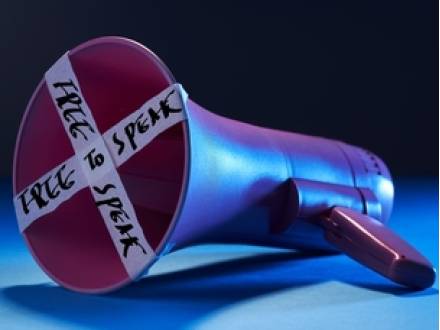 Words have weight – and sometimes, they come with legal consequences. If you are accused of making a terroristic threat, you could face misdemeanor or felony charges depending on the specific act. Whether it was intended as a joke or not, you could find the police knocking at your door with a warrant for your arrest. Before you panic, you should get in contact with a Houston criminal defense lawyer who can represent you at a hearing.
Words have weight – and sometimes, they come with legal consequences. If you are accused of making a terroristic threat, you could face misdemeanor or felony charges depending on the specific act. Whether it was intended as a joke or not, you could find the police knocking at your door with a warrant for your arrest. Before you panic, you should get in contact with a Houston criminal defense lawyer who can represent you at a hearing.
At Murphy & McKinney Law Firm, P.C., we understand how stressful your criminal case may be to you, especially if you have never been arrested before. We will take a close look at the statement that led to your arrest, looking for mitigating circumstances or possible defenses.
Terroristic Threats Must Be Violent
To qualify as a terroristic threat, the inciting words must carry a direct threat of violence. This can be directed towards either people or property. Examples of terroristic threats may include:
How Often Do False DWI Arrests Happen in Houston?
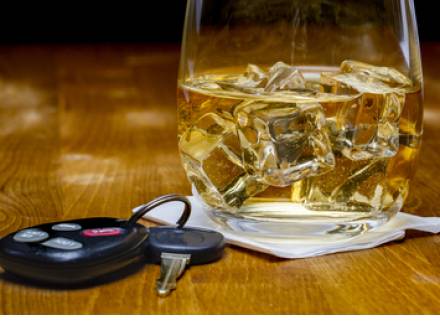 Despite endless persuasion campaigns pushing Houston residents to avoid driving while intoxicated (DWI), the number of arrests for DWI has soared in recent years. According to the Harris County Sheriff's Office, more than 10,500 people were arrested under suspicion of DWI in Harris County during the first eight months of 2019 alone. If that sounds high, that is because those numbers are much higher than the prior year.
Despite endless persuasion campaigns pushing Houston residents to avoid driving while intoxicated (DWI), the number of arrests for DWI has soared in recent years. According to the Harris County Sheriff's Office, more than 10,500 people were arrested under suspicion of DWI in Harris County during the first eight months of 2019 alone. If that sounds high, that is because those numbers are much higher than the prior year.
While the number of arrests is fairly easy to track, it is less clear how many of these arrests are wrongful. After all, not all DWI arrests result in a formal charge. In other instances, DWI charges are dismissed by the prosecutor or rejected at trial by a jury. If you have been wrongfully charged with DWI, a Houston criminal defense lawyer at Murphy & McKinney Law Firm, P.C. can provide you with devoted advocacy in court.
Frequency of False DWI Arrests
According to statistics compiled by the FBI, there are more than 10 million arrests each year. That works out to one arrest in the United States every three seconds. Unfortunately, the court systems throughout the country are far less apt to provide data than law enforcement agencies. Because of this, there is little information on the results of these cases.




 Office Location
Office Location
